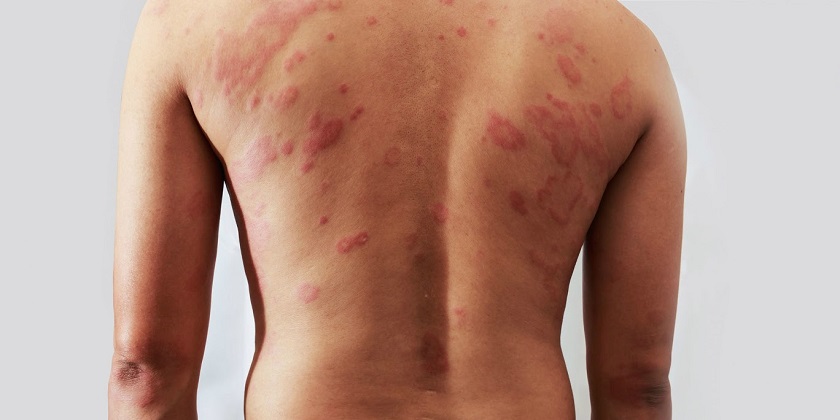- Home
- Atopic Dermatitis Treatment

Overview
Atopic dermatitis (eczema) is a condition that makes your skin red and itchy. It's common in children but can occur at any age. Atopic dermatitis is long lasting (chronic) and tends to flare periodically. It may be accompanied by asthma or hay fever.
No cure has been found for atopic dermatitis. But treatments and self-care measures can relieve itching and prevent new outbreaks. For example, it helps to avoid harsh soaps, moisturize your skin regularly, and apply medicated creams or ointments.
Symptoms:
Atopic dermatitis (eczema) signs and symptoms vary widely from person to person and include:
- Dry skin
- Itching, which may be severe, especially at night
- Red to brownish-gray patches, especially on the hands, feet, ankles, wrists, neck, upper chest, eyelids, inside the bend of the elbows and knees, and in infants, the face and scalp
- Small, raised bumps, which may leak fluid and crust over when scratched
- Thickened, cracked, scaly skin
- Raw, sensitive, swollen skin from scratching
Atopic dermatitis most often begins before age 5 and may persist into adolescence and adulthood. For some people, it flares periodically and then clears up for a time, even for several years.
Causes
Healthy skin helps retain moisture and protects you from bacteria, irritants and allergens. Eczema is related to a gene variation that affects the skin's ability to provide this protection. This allows your skin to be affected by environmental factors, irritants and allergens.
In some children, food allergies may play a role in causing eczema.
Risk factors
The primary risk factor for atopic dermatitis is having a personal or family history of eczema, allergies, hay fever or asthma.
Complications
Complications of atopic dermatitis (eczema) may include:
- Asthma and hay fever. Eczema sometimes precedes these conditions. More than half of young children with atopic dermatitis develop asthma and hay fever by age 13.
- Chronic itchy, scaly skin. A skin condition called neurodermatitis (lichen simplex chronicus) starts with a patch of itchy skin. You scratch the area, which makes it even itchier. Eventually, you may scratch simply out of habit. This condition can cause the affected skin to become discolored, thick and leathery.
- Skin infections. Repeated scratching that breaks the skin can cause open sores and cracks. These increase the risk of infection from bacteria and viruses, including the herpes simplex virus.
- Irritant hand dermatitis. This especially affects people whose work requires that their hands are often wet and exposed to harsh soaps, detergents and disinfectants.
- Allergic contact dermatitis. This condition is common in people with atopic dermatitis.
- Sleep problems. The itch-scratch cycle can cause poor sleep quality.

